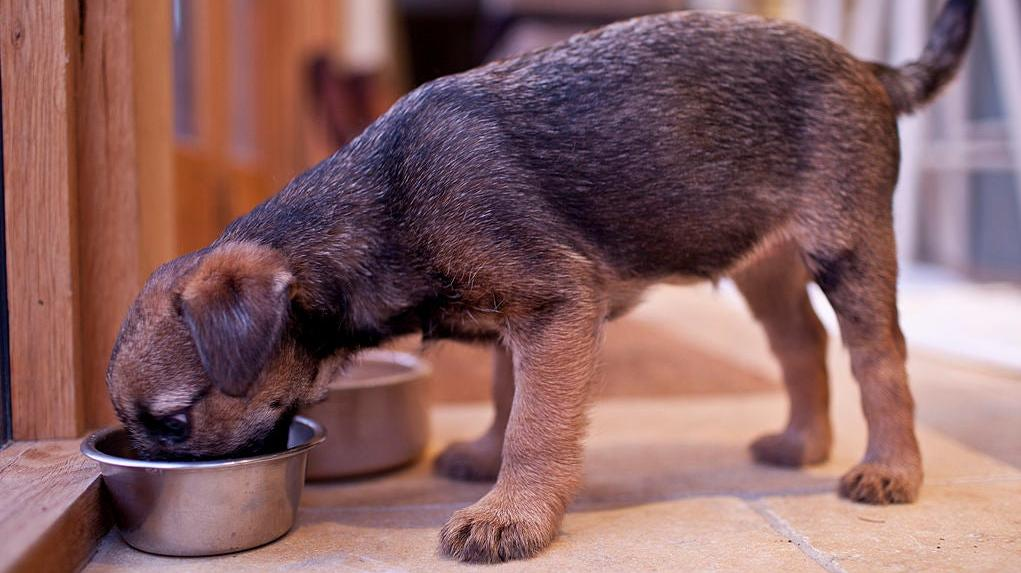Careful, Dog Parents, That Raw Dog Food Might Be Dangerous
The increasingly popular raw dog food diet could be harboring multi-drug resistant bacteria.
Euronews has reported on a new study that found dog food can contain drug-resistant bacteria, and the article quickly started trending on Twitter as concerned dog parents began sharing it around. Researchers from UCIBIO, the Applied Molecular Biosciences Unit at the University in Porto in Portugal, examined dog food from pet shops and supermarkets and found that more than half of the samples they tested contained enterococci, bacteria typically found in human intestines.
The issue is that enterococci is, by nature, drug resistant, which means some species of the bacteria can fuel dangerous outbreaks of infections. It's estimated that a whopping 700,000 people worldwide die of drug-resistant infections a year, and the World Health Organization considers antibiotic resistance one of the primary threats to public health. So it's not the sort of thing we want lingering in our dogs' bowls (or bowels).
After examining 55 samples of dog food from 25 different brands available in Portugal and the rest of Europe, more than 50% tested positive for enterococci. Among those samples, 40% were resistant to multiple antibiotics, and worst of all, 25% were specifically resistant to linezolid, a "last-resort antibiotic" that doctors use to treat infection when everything else has failed.
But here's the striking thing: while over half the dog food samples contained enterococci, 100% of the frozen raw dog food samples contained multi-drug-resistant enterococci, and many of those were resistant to linezolid. Raw dog food was far and away the most dangerous product, in terms of the bacteria it contained. (On the whole, compared to dry dog food, wet seems to harbor more of the concerning enterococci, while the dry dog food samples were only flagged with a few instances after testing was completed.)
Raw dog food—composed of some combination of organ meats, fruits and vegetables, muscle meat, raw eggs, and dairy—is preferred by pet owners who believe that it contributes to better overall health, a shinier coat, and increased energy in their pet. It's different from classic dog kibble, which presses all ingredients together and cooks them into small pieces. The American Kennel Club says that even if an owner prefers to maintain a raw diet for their dog, "Meticulous care is required in the handling, preparation, and sanitation of raw food." It's not a good option for any dog living in a household where people have compromised immune systems.
The paper, co-written by Dr Ana Freitas, Dr Carla Novais, Dr Luísa Peixe and other researchers, says that the study "[positions] pet food as an important source of antibiotic resistance spread." In terms of what we can do to minimize the risks, Freitas says, "Dog owners should always wash their hands with soap and water right after handling pet food and after picking up feces."
